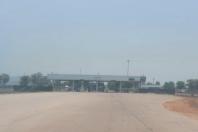The controversy surrounding the highly enriched uranium program and North Korea’s nuclear ambition have triggered concerns regarding its nuclear weaponry. North Korea, also known as the Democratic People’s Republic of Korea, prides itself on a “hermit kingdom”, surviving as a nation for over 60 years upholding absolute isolationism. For years, its nuclear program has been the catalyst for increased concern about many nations’ national security through nuclear provocations. The DPRK has heavily relied upon Kim Jong Un, a supreme leader in a long history of kleptocracy and various elements of totalitarianism to establish its rule. Their alarming threat, irrational decisions, and the aggressive regime have resulted in member-states intensifying their efforts to develop anti-ballistic missile programs. Previous efforts made to persuade North Korea to denuclearize were unsuccessful. North Korea still possesses a plethora of Weapons of Mass Destruction (WMDs) capable of posing a threat to foreign nations. For example, it is still the only nation with (WMDs) that remains outside of the Comprehensive Nuclear Test Ban Treaty, a treaty which prevents explosives from being tested in civilian and military environments. The United States attempted to negotiate with North Korea through the Agreed Framework with an ultimate goal of denuclearizing the Korean Peninsula. In an effort to dismantle nuclear weapon activities within the international community, the Six-Party Talk was established in 2003 and that brought about multilateral negotiations which were held between six member nations regarding the conflict. Since then the talks have broken down for several times and pressure by the international community to resume negotiations has grown. Despite increased diplomatic efforts, the regime has repeatedly maintained its stance of increased activities on nuclear arsenal and intercontinental missiles to ensure the survival of its state against foreign powers.
North Korea has got a sophisticated nuclear program for the longest time. Their ambitions to establish and gain ownership of nuclear weapons date back to the 1950s and 1960s during the height of the Cold War. During that period of time, member states were increasingly alarmed and concerned about the prospect of a third World War. Hence, countries such as North Korea established close ties with their allies (Soviet Union) to ensure the sovereignty of their respective states. In 1956, the North Korean government signed the Soviet Union’s Joint Institute for Nuclear Research which would enable North Korea to develop its nuclear arsenal under the provisions of the Soviet Union and would eventually provide an impetus to construct the Yongbyon Nuclear Research Center, an established modern nuclear facilities that the regime could use to defend itself.
As nuclear weapons were increasingly becoming rampant and prevalent, North Korea along with other nations who possessed nuclear weapons signed the Treaty on the Non-Proliferation of Nuclear Weapons in 1985 to promote cooperation and stop the spread of nuclear weapons. However, the regime did not agree on the safeguard agreements of the treaty, which would have prevented North Korea from developing nuclear power. As a result, North Korea developed WMDs in an unprecedented level. Consequently, this revelation eventually led to the demise of the state. Since its secretive and extensive use of plutonium, North Korea was out of the International Atomic Energy Agency and many became concerned about its future possible nuclear actions. Due to North Korea’s volatile behavior, the United States attempted to negotiate with North Korea through the Agreed Framework with an ultimate goal of denuclearizing the Korean Peninsula. However, the Agreed Framework ultimately did not materialize. In a deal to prevent North Korean from leaving the NPT, the United States agreed to remove its nuclear power from South Korea and normalize economic relations with North Korea through the removal of sanctions, and disregarding the country as state terrorists in exchange for complete freezing of all nuclear weapons under the supervision of the IAEA. However, the United States failed to provide the two light water reactors to North Korea which immediately prompted North Korea to withdraw from the deal.
North Korea’s unpredictable and aggressive actions led a failure in holding talks. In 2005, it agreed to denuclearize in exchange for food aid but ultimately backed out after North Korea threatened to deploy its weapons if no further leverage was given. In 2007, North Korea agreed to remove its Yongbyon facility and give intel on its nuclear weapons but backed out again.
However, since the turn of 2018, North Korea has seemingly changed its stance on the political landscape, wanting to represent itself as a paragon of peace, stability, and a contributor to the international community through efforts to completely denuclearize on the basis that their safety and sovereignty are protected. North Korea maneuvered a series of summits between South Korea and the United States of America in an attempt to reconcile differences, foster diplomacy, and expedite the process of “denuclearization in the North Korean peninsula.” The first summit between the North and South Korea was held on April 27. This summit sets off an unprecedented and historic meeting between the two countries, marking the first time a North Korean leader has set foot on South Korea. The two countries agreed upon the Panmunjom Declaration whereby they pledged on complete denuclearization, increased inter-Korean dialogues, and the end of the Korean War although the terms of these efforts remain vague. This marked a series of diplomatic efforts between the two countries where they vowed to eventually end their difference and work towards a goal of ending the military activities within the region. On September 18, in another summit, North Korea agreed to demolish its Dongchang-ri missile test site and various other military declarations. Furthermore, North Korea has also established talks with the United States. Over a span of two years, the two countries have met on three occasions including an impromptu meeting on June 30, signaling a desire to change their relationships. Their first summit in Singapore resulted in a joint agreement in which both agreed to pursue denuclearization. The United States agreed to decrease its joint military actions in South Korea in exchange for North Korea to dismantle one of its missiles sites. However, other summits have not resulted in “positive” developments as the two parties failed to come to an agreement as North Korea was only willing to eliminate a majority of their nuclear weapons in exchange for partial sanctions relief, a stance in which the United States does not stand by.
Although many are skeptical of these talks, it is imperative to note that this is the only viable option the United States and South Korea can resolve this issue. A vast majority of the populace still believe that North Korea will exploit the terms of any aforementioned agreement in these summits. They believe that North Korea will use these agreements while simultaneously working on developing its nuclear arsenal in direct violation to their initial terms in an attempt to salvage temporary economic gains. To an extent, this could be a possibility given North Korea, but it does leave many wondering whether this is a new beginning. For the first time, the so-called Hermit Kingdom has opened itself to the world with a clear initiative to denuclearize. This is the only path foreign powers have to denuclearize North Korea and even if there is an alternative, it is not the one that any nation would risk, as North Korea’s nuclear arsenal is the one that is accomplished. It is simply that there are too many obstacles to tackle if nations take a different route.
There are several issues that must be discussed as to why the problem is so hard to solve. Firstly, one must take note of the fact that Kim Jong Un has leverage over the trade talks between China and the United States. As trade disputes increase, the United States might not have a viable partner with China to impose further sanctions on North Korea. In the form of retaliation, China might not agree on the United States’ demand. This causes Kim Jong Un to have enough control and power to continue to build his nuclear arsenal. Secondly, Kim Jong Un wants to guarantee that he stays in power. One can easily forget that he prioritizes his own economic and personal gains in which he has purged his own family members, established brute oppression and totalitarianism over his people to ensure his stay in power. Removal of sanctions and implementation of economic benefits will not make Kim Jong Un give his most advanced and prized assets - nuclear weapons. He wants minimal interference in his rule of power so as to ensure that his regime lasts for a prolonged period of time. Also, it is important to take note of conditions in which the DPRK alongside nations such as Japan remain integral parts of the Six-Party Talks to ensure all parties agree to a deal. For example, even if the United States were to remove joint military exercises and nuclear weapons on the peninsula, the Kim regime still has concerns as the United States have the power to send these weapons across the ocean and annihilate the state.
Despite efforts to resolve the issue, it is prevalent that many have tried and have failed. It is inevitable that North Korea will remain provocative as it has been before. Thus, in a situation in which North Korea does not denuclearize, it could lead to massive issues of national security, triggering another World War. North Korea has repeatedly displayed that they are not backing down. They will not tolerate any sort of dominance from a foreign power and if their state is provoked, they will be willing to fire any and all attacks including rocket launchers and artilleries which could cause massive devastation and fatalities. Thus failure to act upon this nuclear quagmire could result in a massive violent conflict and disestablishment of international cooperation.










